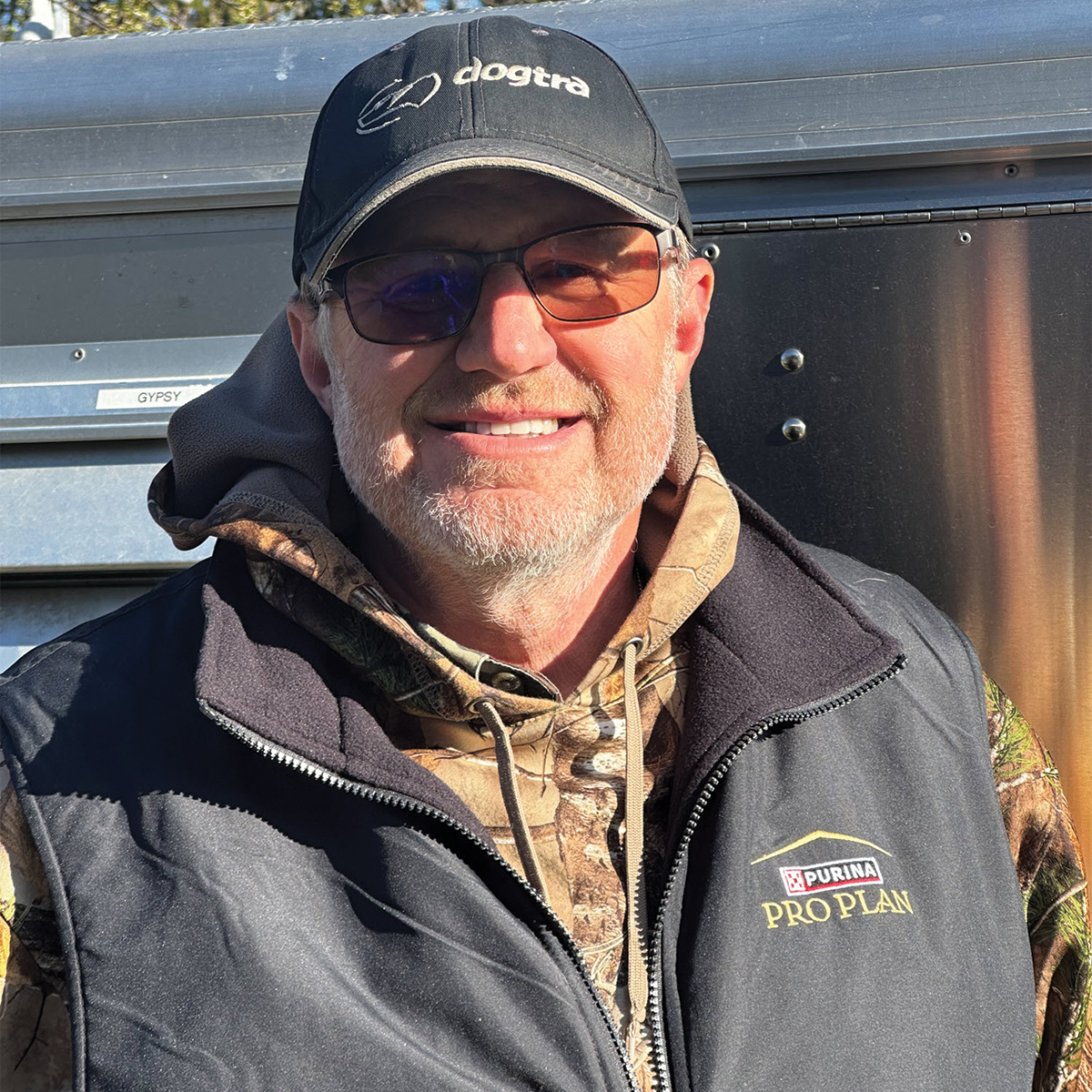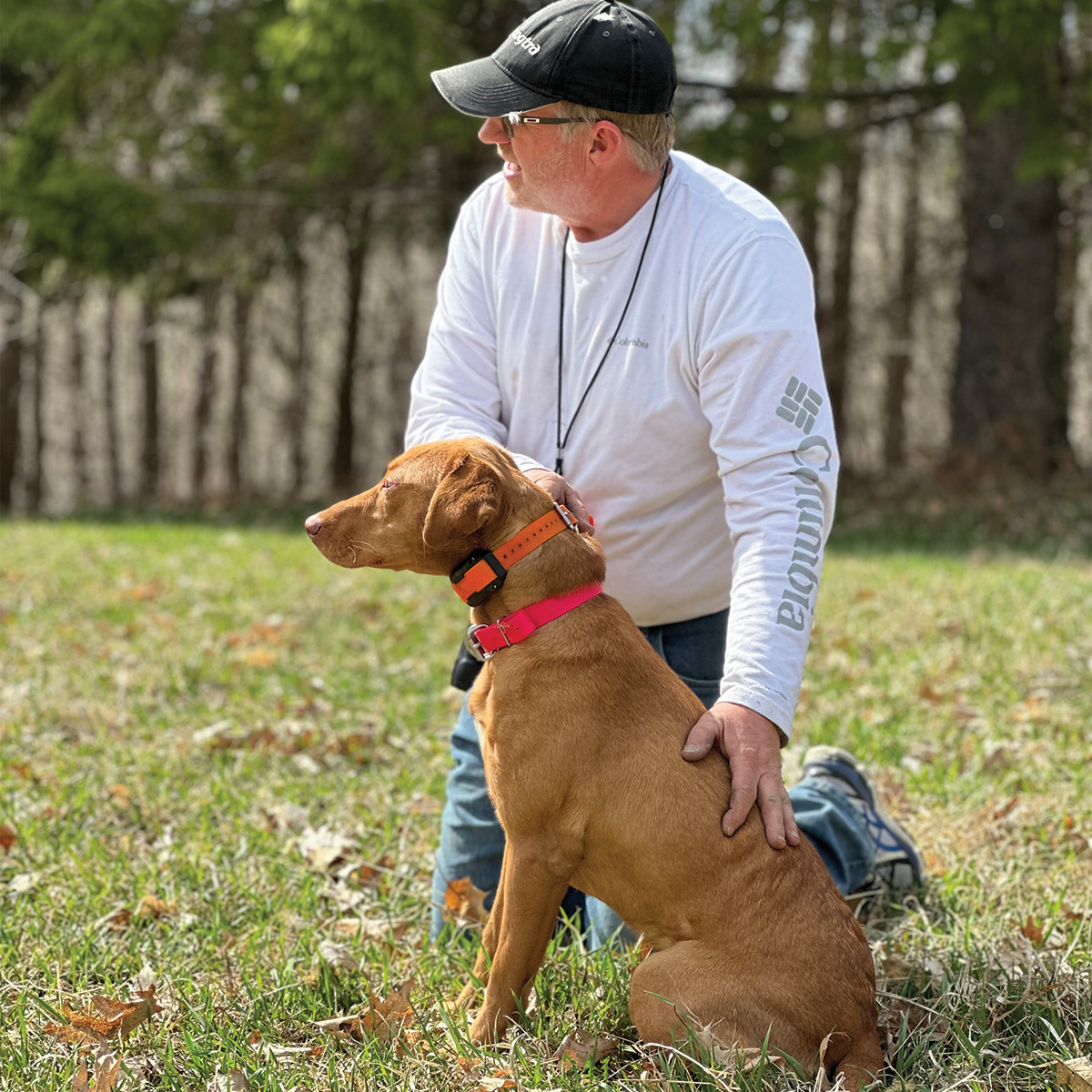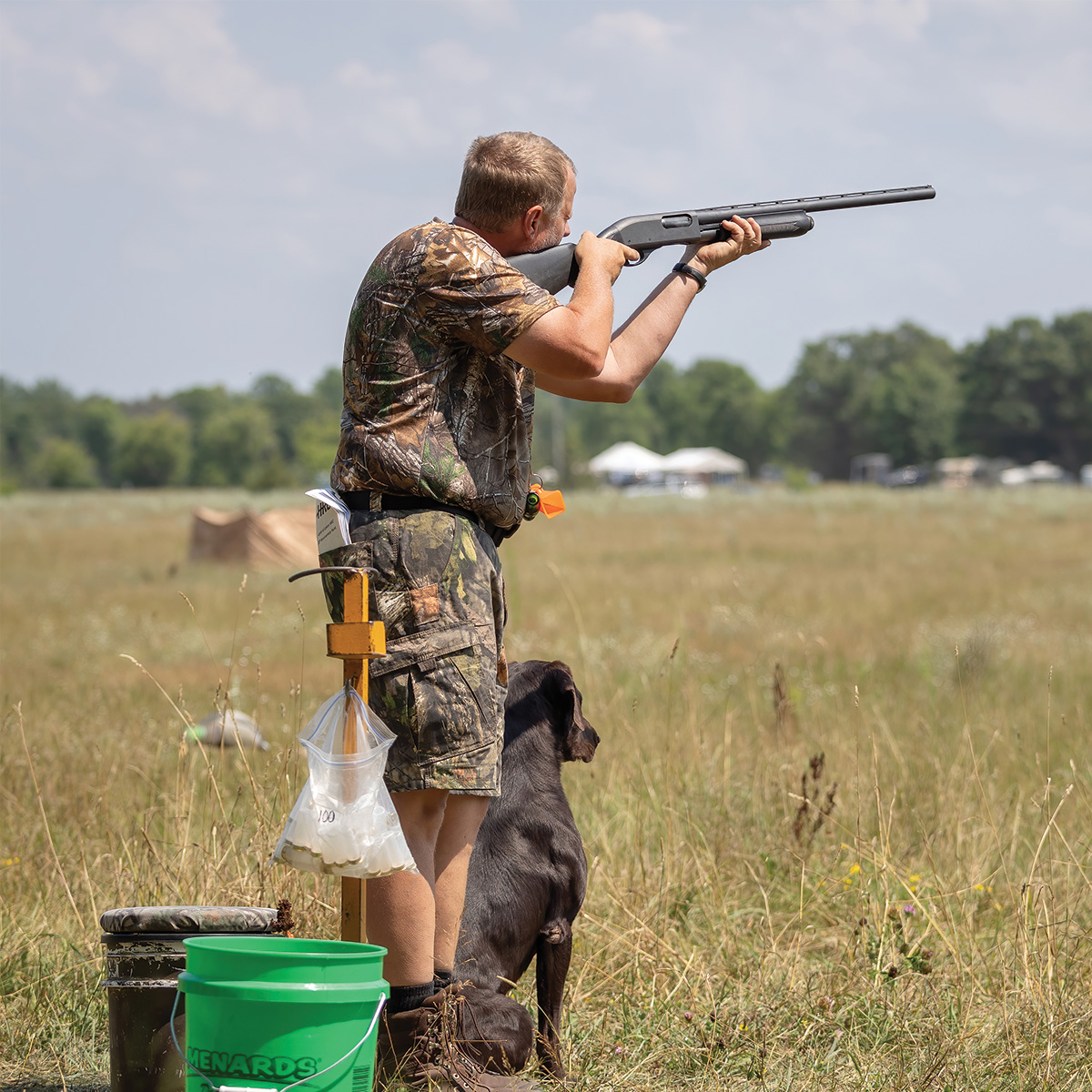Meet the Trainers: Q&A with Veteran Dog Trainer Steve Smith
Elevate your retriever training skills with insights from Steve Smith of Otter Tail Kennels
Elevate your retriever training skills with insights from Steve Smith of Otter Tail Kennels


Meet veteran retriever trainer Steve Smith of Otter Tail Kennels.
Location: Menomonie, Wisconsin
How long have you been a trainer? 30 years
The first year of a puppy’s life is critical in establishing the dog’s future training ability. There are many things that need to happen in that first year, and much of it needs to happen in the first six months.
If I had to pick one thing as a priority, it would have to be socialization. Socialization is so vital to a dog’s development. And it is something we see way too many dogs lacking. It is not a hard thing to do, but it does take time and a concerted effort to make sure your dog is well socialized.
Obedience is also key and teaching your dog to handle pressure.
You must also develop your pups retrieving desire. Teach your pup the retrieving game early and often. But do it right, use a long lead and don’t let bad habits (like running off) start.
Amateur trainers often move too fast through training. They are always comparing their dog with someone else’s dog, and they expect too much, too soon.
Each dog progresses on their own timeline and pushing a dog into training he is not ready for can only cause problems.
In addition, amateur trainers are often excited about their new puppy and want it to get hunting as soon as possible. This can lead to skipping steps or moving forward before a dog is ready.
I don’t think choosing a pup’s name is that significant, but there are a few things you should consider when choosing a name.
First, consider the commands you will be teaching your dog. It is best if the dog’s name doesn’t sound like or rhyme with one of the commands because this can lead to confusion. For instance, Teal isn’t a great dog name if you use the command, “Heel.”
Also, avoid names that sound like correction commands. We have trained dogs named Beau and it can be difficult when we were using the command, “No.”
You also don’t want a dog’s name to be too difficult to say. Pick a name with only one or two syllables. Long dog names can be challenging. For retrievers, we send them for a retrieve using their names. So, if the dog’s name is long and difficult to say, it can be a mouthful and you may have to shorten it. For instance, the name Maverick is a common dog name right now, we often use Mav when sending the dog for a retrieve.

The most difficult introduction will vary with each dog. Each dog has its own strengths and weaknesses, and you must train with that in mind. It will often depend on the level of socialization and exposure as a puppy.
That being said, the most important introductions are water and gunfire. The reason these are the most important is that if you introduce things like multiple retrieves or blinds, and have a problem, you still have a dog that can hunt. But if you introduce water poorly, you may have a dog that won’t swim or even go near water. And this is a problem if you are a duck hunter.
Gunfire introduction is also vital. If you mess up gunfire introduction, you will have a dog that will never be able to hunt with you. Many people mess up gunfire introduction by doing it too early and too close.
And while some gun-shy dogs can be retrained, it is a long hard road and one that we would rather not take.
Steadiness is a constant struggle, even for dogs with years of hunting experience. No dog is 100 percent steady. There are always situations where a steady dog may break, but the key is to eliminate as many of these situations as possible.
The best way to correct breaking and improve steadiness is to use a lead or tab lead. Most people stop using a lead or tab lead too early.
In addition, you must always expect your dog is going to break. If you expect your dog is going to break, you will be ready to make the correction as soon as you see movement. The timing of the correction is vital.
The last thing that helps improve steadiness is removing the paycheck. A retriever loves to retrieve. The retrieve is their paycheck. So, if your dog breaks, he should not get the paycheck.
During training, this is done by having the thrower/gunner run and pick up the bird before the dog gets there. Hence, if the dog breaks, he gets no reward – no retrieve. This makes a lasting impression on most dogs.
The best way to have a quiet dog, is to never let the noise start. Ideally, when the dog is a young puppy, you would start firmly correcting noise. If you start early and are very consistent, then much of the whining can be stopped with a “quiet” command and squeezing the pup’s muzzle.
There is also a genetic factor here. Some litters have noise in the genetics so keep that in mind when selecting a litter for your puppy.
With an older dog, 6 months or older, whining is more difficult to stop.
The approach I would use depends on when the noise is showing up. Is the dog being whiny while in a crate? Or is the dog making noise in the blind or before a retrieve? These are different concerns.
A dog that is whining prior to retrieves is a much bigger issue, especially for duck hunters. Nobody wants to sit in a boat or blind with a noisy dog.
For a dog that is whining before a retrieve, the fix must be worked on during training. This is another example of where the dog should be refused his paycheck. Noise before a retrieve will equal no retrieve. If the dog is quiet at the line, then he gets to retrieve.
Stopping noise is a very difficult training process. It takes a lot of work. If you have a young puppy, do yourself a favor and put a stop to the noise right away.
Training in the summer heat is challenging. You must constantly be aware of how your dog is handling the heat. Our basic rules are:

I would not recommend taking your dog hunting until you have trained your dog to perform in a hunting situation. Many people take their dog out hunting too soon. I understand being excited about getting your dog in the field, but if your dog has not been prepared for the hunting scenario he is going to encounter, you are going to cause problems that can be difficult to fix later.
When training your dog, set up training situations that mimic your type of hunting. If you hunt from a boat, do some training from a boat. If you hunt in a blind, set up a blind and do some training. Be sure and make the situation as close to the real thing as possible. If your dog can handle these types of training scenarios, then he is likely ready for the real thing.
But make sure you have appropriate expectations for that first hunt. You want the first few hunts to be quick, easy successful hunts for your dog. You don’t want to put them in the position of failing or worse yet, getting no retrieves. Don’t complicate the hunt with multiple gunners and dogs, unless you have trained your dog in those type of situations.
What we generally see in hunting dogs is that basic obedience goes out the window during the hunt. The excitement of the hunt is a lot for the dog, and they will be amped up. This means that your dog can be difficult to control in these situations.
This is why we always say that you need to try and recreate your hunting experience as much as possible in training. And you must take the time to enforce commands and expectations even during a hunt. It is not fun to stop hunting to get control of your dog, but if you don’t, then the next hunt will be even worse. If your dog learns that you will not correct them or enforce commands on them during a hunt, you are going to be in a world of hurt. Because it only goes downhill from there.
I hunt to watch my dogs work, so all the training and preparation during the year is for the hunting season. I expect my dog to be a pleasure to be around during hunting, which includes being obedient and good manners. I also hope that they enjoy hunting as much as I do. A good day in the duck blind with the dog is more important to me than how many ducks I shoot down. Duck hunts can be made or ruined by how well your dog behaves.
Ducks Unlimited uses cookies to enhance your browsing experience, optimize site functionality, analyze traffic, and deliver personalized advertising through third parties. By continuing to use this site, you agree to our use of cookies. View Privacy Policy